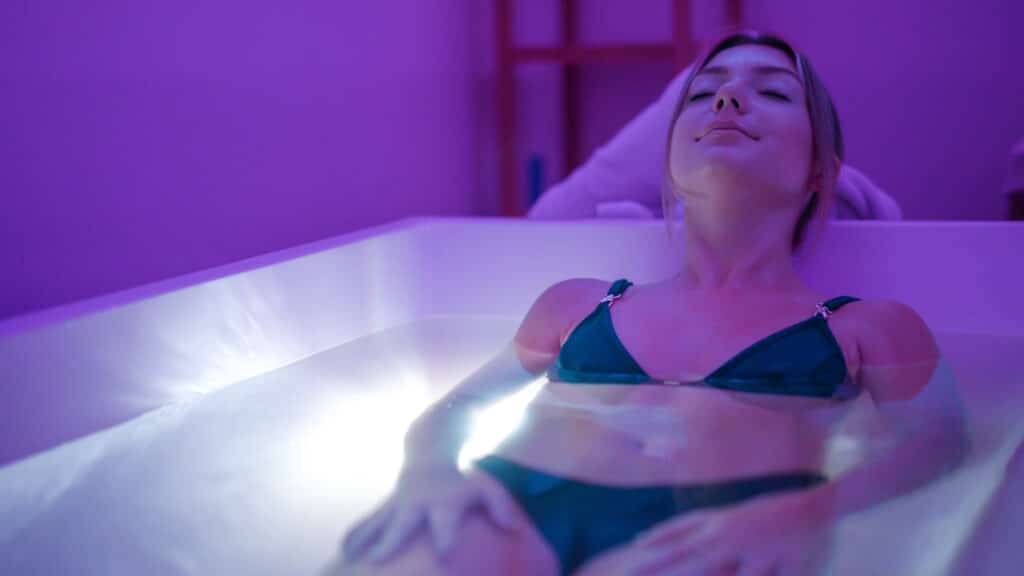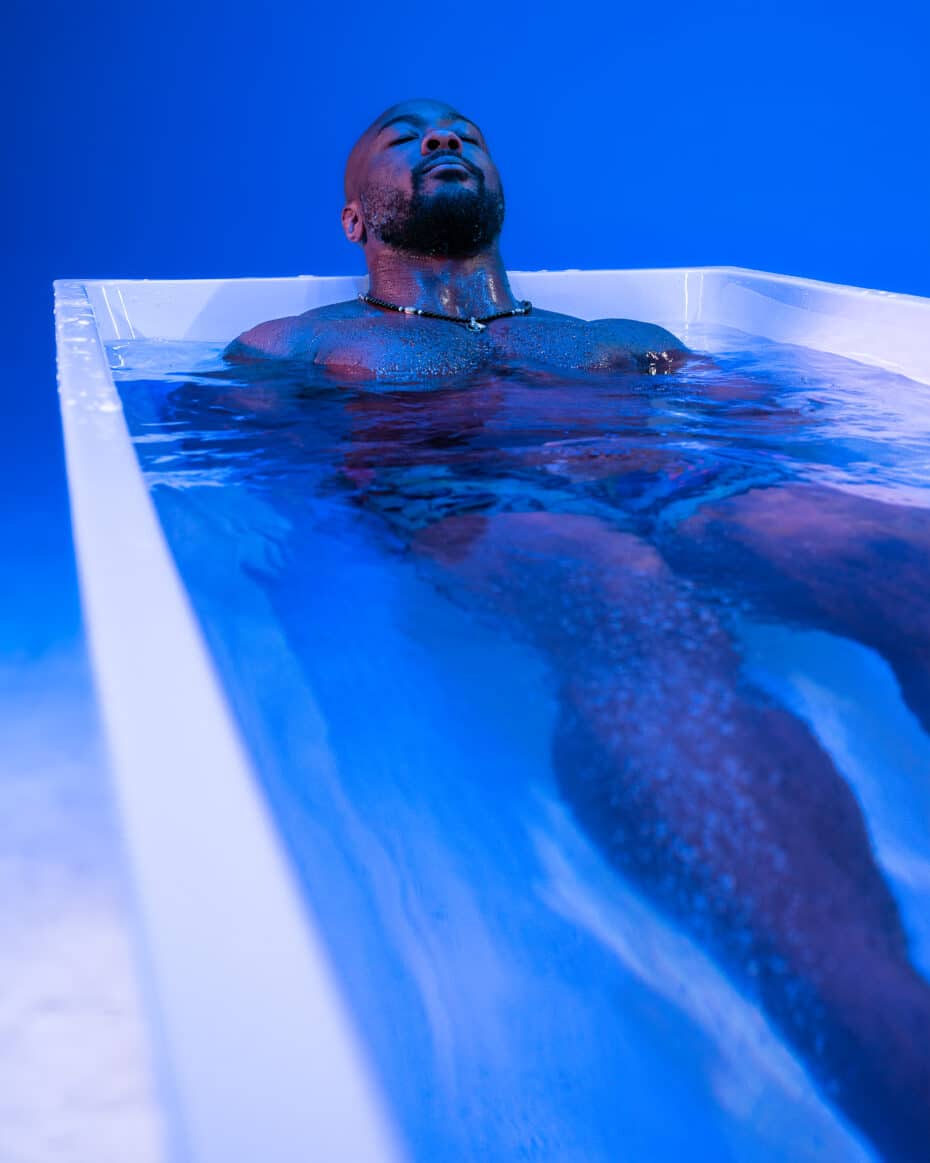
What is “cold plunging”?
Cold plunges and cold immersion therapies have been used for centuries as a way to improve health and wellness. Cold plunging is the practice of immersing the body in a full tub of ice-cold water ranging from 59° to 39° (anything below 60° is going to have benefits!) for 2-5 minutes. Sounds simple, right? And it is! Cold plunging is a simple health and wellness tool with incredible benefits.

What are the benefits of cold plunging?
- Reduces inflammation: Cold exposure has been shown to reduce inflammation in the body, which can help alleviate pain and improve overall health. Studies have found that cold water immersion can decrease markers of inflammation in the body, including interleukin-6 and C-reactive protein (1).
- Improves recovery: Cold immersion therapies have been used for decades to help athletes recover from intense training and competition. Studies have found that cold water immersion can reduce muscle soreness and improve recovery following exercise (2).
- Boosts circulation: Cold exposure can cause blood vessels to constrict, which can increase blood flow and oxygen delivery to the body’s tissues. This can help improve circulation and enhance overall health (3).
- Enhances mental health: Cold immersion therapies have been shown to have a positive impact on mood and mental health. One study found that cold water immersion can increase feelings of relaxation and reduce symptoms of depression and anxiety (4).
- Supports immune function: Cold exposure has been shown to activate the immune system, which can help strengthen the body’s ability to fight off infection and disease. Studies have found that cold water immersion can increase levels of immune cells, including natural killer cells and white blood cells (5).
- Increases metabolism: Cold exposure has been shown to increase metabolic rate, which can help burn more calories and support weight loss. One study found that cold exposure can increase metabolic rate by up to 20% (6).
- Improves sleep: Cold immersion therapies have been shown to improve sleep quality and duration. One study found that cold water immersion can increase deep sleep and reduce the time it takes to fall asleep (7).
Overall, cold immersion therapies can provide a range of potential health benefits, from reducing inflammation and improving recovery to enhancing mental health and supporting immune function. While more research is needed to fully understand the mechanisms behind these benefits, cold immersion therapies are a safe and accessible way to support overall health and wellness.

References:
- Bleakley, C. M., & Davison, G. W. (2010). What is the biochemical and physiological rationale for using cold-water immersion in sports recovery? A systematic review. British Journal of Sports Medicine, 44(3), 179-187.
- Hohenauer, E., Taeymans, J., Baeyens, J. P., Clarys, P., & Clijsen, R. (2015). The effect of post-exercise cryotherapy on recovery characteristics: a systematic review and meta-analysis. PloS one, 10(9), e0139028.
- Shevchuk, N. A. (2008). Adapted cold shower as a potential treatment for depression. Medical hypotheses, 70(5), 995-1001.
- Cowen, J. W., & Adams, T. B. (1999). Physical and psychological effects of cold water immersion: A review. Journal of Strength and Conditioning Research, 13(3), 152-157.
- Gamelin, F. X., et al. (2016). Effect of cold water immersion on 100-m sprint performance in well-trained swimmers. European Journal of Applied Physiology, 116(11-12), 2225-2235.
- Yoneshiro, T., et al. (2013). Brown adipose tissue, whole-body energy expenditure, and thermogenesis in healthy adult
- Okamoto-Mizuno, K., & Mizuno, K. (2012). Effects of thermal environment on sleep and circadian rhythm. Journal of Physiological Anthropology, 31(1), 14.
Share this Post

